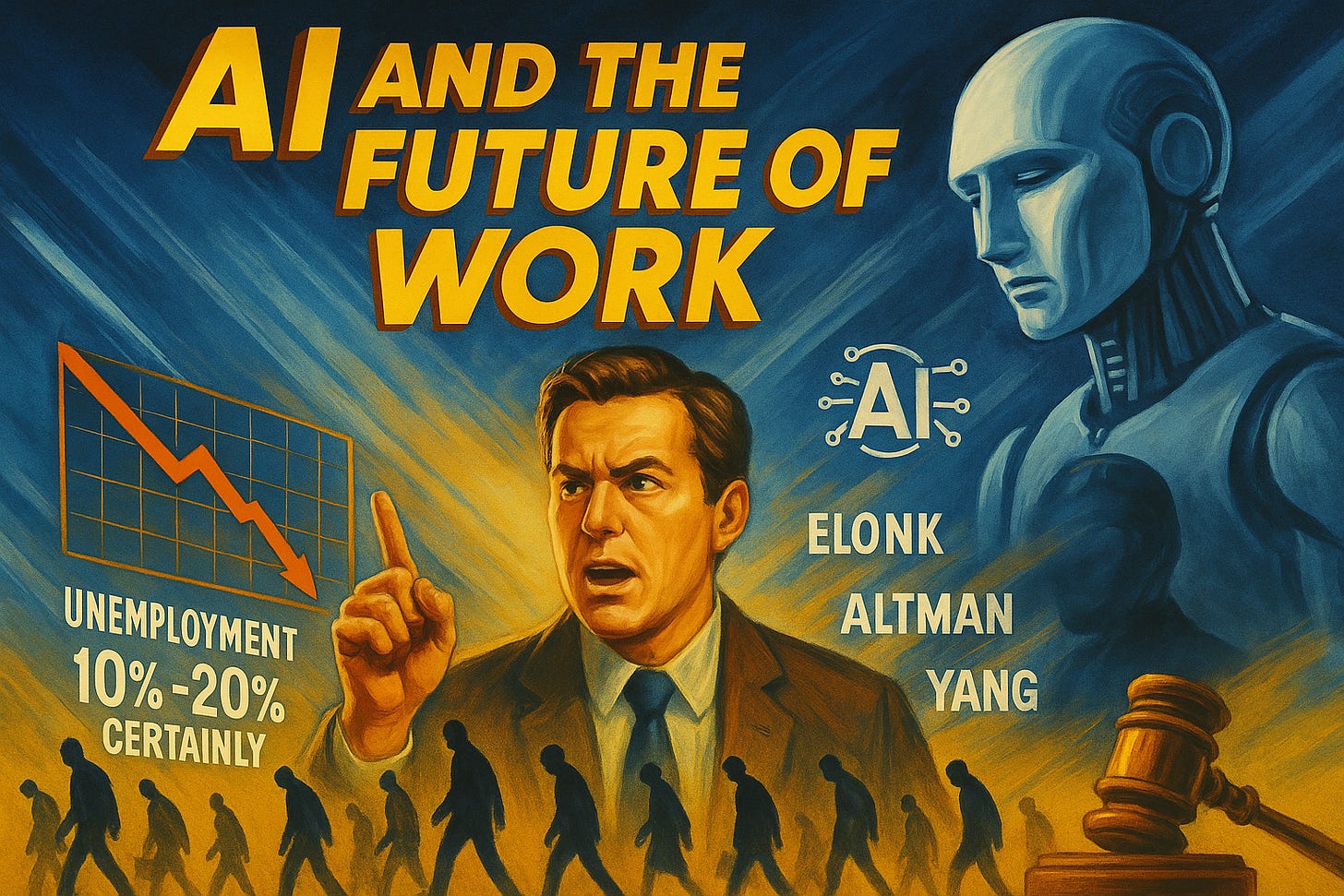Activist vies for CD7 seat
From Ajo to DC … No longer unfireable … And stand by your man.
One of the earliest memories for Jose Malvido was living in Ajo during the Great Arizona Copper Strike — his father was a union organizer.
The mine was the largest employer in the small rural town, and the strike divided the community.
Malvido watched families being forced out of their homes, including a neighbor who was evicted because their home was being seized by eminent domain by the mine.
“They were refusing to leave and they were getting drug out of their home, including their kids, and getting arrested. And it was just something that made me want to go over there and help them. And I tried to help them, but I was just a little kid,” Malvido said.
It was the start of a lifetime of community activism for Malvido.
“I've dedicated my life to social justice, to helping people, whether it be working in the medical field of providing access to health care to elders, food, running immigration programs and managing them in Somerton, Phoenix and Tucson community centers, (or) creating a home health care organization to meet the needs of the elderly,” he said.
We sat down with Malvido to discuss his decision to run for office in this summer’s special election in Congressional District 7.
The main reason he jumped into the race was a distrust of the Democratic Party in general and his belief that some of his political rivals are more concerned with getting elected and keeping their seat than what is good for CD7.
“We have folks like (Democratic leader Chuck) Schumer in the Senate - when Trump does these massive cuts, he writes an aggressive letter or doesn't really address the [big beautiful bill]. Like he's not addressing the cuts to seniors, he's not addressing the cuts to Medicaid, Medicare, all the different threats out there,” Malvido said.
Malvido is willing to put it all on the line, saying he is not willing to sacrifice doing what is best for the roughly 800,000 residents for another term. He says the stakes are too high to wait until it is politically safe to do the right thing.
“I think that we're at a critical juncture in history and I think that folks do not see that the political, social, economic landscape has changed and it could possibly be transformed forever,” he said. “We're supposed to have separation of powers to keep a balance. Right now those powers are being eroded. So my work I would do is really to fight to make sure Congress takes back their power.”
Malvido is critical of his political rivals for not addressing the Israel-Gaza Conflict on the campaign trail.
“After World War II, we said 'never again' as the world. There was a convention on genocide. The League of Nations and the U.N. was created. Other international institutions were created because of the Holocaust and the genocide,” he said. “And it's just really heartbreaking to hear on a daily basis that people are being massacred, that there are some politicians in the state of Israel that want to eliminate the Palestinians. And it's heartbreaking. It's wrong. And I think that we need more Democrats to speak about it.”
If you want to serve in Congress, Malvido argues, you need to be ready to be judged by history — not just the latest polls.
“I think that we really need to do some soul searching because in the future the history is going to look back at us as like, why didn't we do something?” he told us. “It's something that's even infuriating because we have folks that are not wanting to address this for a variety of reasons. And I think at least no issue should be off limits, especially if we're going to be running for Congress, and we should be accountable to all these issues.”
Ballots will start arriving in mailboxes on June 18 for the July 15 primary election.
Our newsletter will arrive in your inbox every weekday from now until July 15 (and beyond!) if you click this button.
The joint meeting of the Pima Association of Governments Regional Council and the Regional Transportation Authority Board ended somewhat abruptly after the two boards voted 5 to 4 to fire PAG executive director, Farhad Moghimi.
Moghimi was the executive director for the last 13 years, but has long been the target of criticism for unfinished RTA projects.
Readers might remember that a vote on firing Moghimi had been repeatedly delayed because two different attorneys decided not to work with PAG (one quit, and another turned down a temporary contract). But a majority of the boardmembers opted to fire him, despite concerns about taking action without clear legal guidance.
With no attorney on staff and PAG deputy director David Atler not attending the joint meeting, it was unclear whether the staff could proceed with various presentations and have the board vote on other items on the agenda.
The board voted to adjourn and reschedule the meeting.
Both boards are set to meet again in the next few weeks.
Meanwhile, a former PAG employee told the board at the meeting that she had been asked to sign a non-disclosure agreement when she gave notice that she was retiring after 11 years.
In exchange for her signature, she was offered several thousands dollars — the equivalent of her unused paid time off — to ”not criticize PAG or RTA” and not serve on any citizen-led boards tied to PAG or the RTA. She declined to sign the form.
The Tucson Agenda was able to corroborate the offer through public records.
At least one member of the PAG board said that they believe other PAG staffers were asked to sign similar NDAs when they left the organization.
Just like a lot of people, the big names in AI are worried their tech will decimate the job market.
Or at least they say they are. And they can’t quite agree on what’s going to happen. Or even how worried everybody should be.
In fact, it’s a huge debate that was kicked into high gear last week when a titan of the industry made a bold prediction.
We’ve got the skinny for you in this week’s edition of the A.I. Agenda.
Elsewhere in the world of AI, the biggest newspapers in the country are leaning into AI tools, Isaac Asimov still has some lessons for us, and seniors in Arizona are finding new “companions.”
If you want to follow the debate, and a whole lot more, all you have to do is click that button!
We’ve got it all in this week’s edition of the Education Agenda.
Vouchers are popping up in a GOP primary showdown. Apparently, everybody deserves a Rolex. And the feds have more than enough money to go around.
Under new state laws, teachers could get in big trouble for … teaching. And lawmakers are taking aim at Isaac Elementary (and any other school district that gets into financial trouble).
Plus, Arizona’s universities are watching Trump’s crackdown on higher education from the sidelines, at least for the time being. And a seventh-grader shined on a big stage in Washington, D.C.
Click that button and we’ll keep you on top of it all!
In today’s edition of the Water Agenda, Christian talks with Republican Rep. Alex Kolodin about the possible futures of Arizona’s groundwater.
Should groundwater become a traded market commodity?
Is Arizona due for new regulatory concepts like “correlative water rights”?
Will urban Arizona one day take rural Arizona’s water?
They dive deep into these questions, often pushing back against each others’ conclusions.
And Christian takes a look at what happens when the culture wars meet the water wars, throwing his own opinions into the mix.
For a bucket full of hot takes on water, visit the Water Agenda.
Republican U.S. Rep. Juan Ciscomani became the topic du jour yesterday on the New York Times’ “The Daily” podcast, which dove into the Republican dust-up over President Donald Trump’s “big beautiful” budget bill.
Ciscomani flipped Southern Arizona’s Congressional District 6 in 2022, helping Republicans win the majority, host Michael Barbaro explained. And one of the big employers in his district, Lucid Motors, has been very vocal about maintaining the electric vehicle tax credits.
Trump’s budget put him in a very awkward position because it eliminated those job-generating tax credits.
“Congressman Ciscomani is being asked, in some sense, to show his loyalty to the president over the workers in his district,” Barbaro said.
Which one do you think he chose?
Yes, after making a lot of noise about protecting those tax credits, Ciscomani folded and voted for the bill.
And now, there’s a decent chance that that vote might all be for naught, as Senate Republicans are showing some serious reservations about supporting the bill’s EV tax credit and Medicaid cuts, and Elon Musk is waging war against the legislation.











Given his recent political ad asking people to stand beside President Trump and criticizing House Dems like AOC, Jeffries and Nancy Pelosi (confusingly enough, but she is definitely a favorite target of MAGA folks), I’d say Ciscomani has decided to fall in line with his felow partisans, which is such an odd shift from previous rhetoric. Sad to hear that if this unfortunate bill is passed, those workers will likely lose their jobs by the time the midterms arrive, as I believe the bill requires an immediate phase-out of those clean energy tax credits (although that could change after the Senate weighs in). Engel could have been a true centrist in our swing district. I worry that Ciscomani, as a businessman, is using his time in office to build a network instead of working for constituents.
Imagine how different the current conversations would be today had Congressional District 6 voters elected Kirsten Engel to represent them instead of Juan Ciscomani.